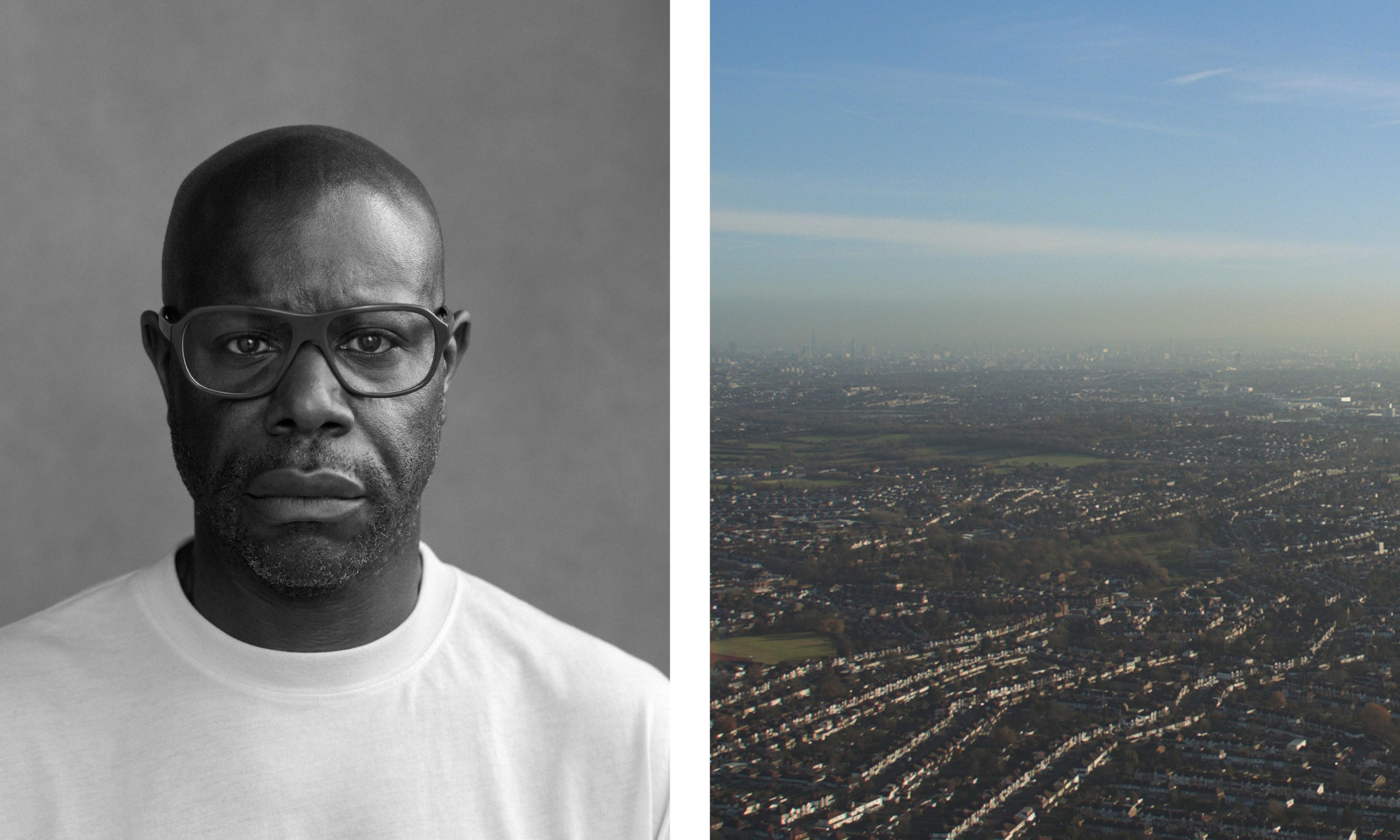Left to right: Portrait of Steve McQueen / Still from Steve McQueen's Grenfell (2019) © Photo James Stopforth / Courtesy of the artist
The Turner prizewinner Steve McQueen will show his long-awaited film about the Grenfell Tower fire at the Serpentine Galleries in London next month (Grenfell, 7 April-10 May). McQueen was able to film the tower from a helicopter in December 2017 before scaffolding was erected around the ruined building. The 24-minute work, which was self funded by McQueen, will enter the collections of the Tate and the Museum of London following the Serpentine display.
In June 2017, 72 people died in the fire which broke out in the 23-storey tower block located in west London. Among the people who died was the British-Gambian artist Khadija Saye, who showed works in the Diaspora Pavilion at the Venice Biennale in 2017.
“I feared once the tower was covered up it would only be a matter of time before it faded from the public’s memory. In fact, I imagine there were many people who were counting on that being the case. I was determined that it never be forgotten. So, my decision was made for me. Remember,” McQueen says in a statement. The film is dedicated to the 72 people who died in the fire, the bereaved and the survivors, he adds.
The Guardian reports that the film is "without words or music, McQueen’s camera relentlessly circles the council block, often at close quarters, allowing viewers to see into rooms where people died and white-suited forensic investigators sifting evidence."
In 2020, The Grenfell Next of Kin support group, comprising the immediate family members of 33 people who died in the 2017 blaze, said they felt “totally disenfranchised” by McQueen’s project.
A project statement says: “McQueen has been in conversation with Grenfell bereaved and survivor groups and individuals from the wider community at different times over the past five and a half years. Serpentine and Steve McQueen have engaged in these discussions so that Grenfell is delivered sensitively and with the considerations of bereaved and survivors at the forefront.”
Phase one of the government inquiry into the disaster ended in 2019; the findings of the second phase are due to be published later this year. Last November, the inquiry closed after 400 days of evidence. Richard Millett KC, the counsel to the inquiry, used his final statement to declare: “Each and every one of the deaths that occurred in Grenfell Tower, on the 14 June 2017 was avoidable.”

